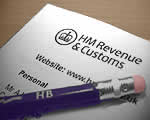 Go to main content
Go to main content
Archive Website of the UK government
Please note that this website has a UK government accesskeys system.
Main menu
Page menu
Money, tax and benefits

Tax and other debts owing to HM Revenue & Customs

If you've received a bill from HM Revenue & Customs (HMRC) that you can't pay, it's important to contact them as soon as possible to try to come to an arrangement. If you don't, and your bill remains unpaid, HMRC will start proceedings to recover the money.
Your options if you can't pay your bill
If you can’t pay your bill, talk to the office that sent you the latest communication - if they agree that you really can’t pay, they’ll do what they can to help. They may give you extra time to pay – possibly by instalments.
If you ignore your bill
If you don't reach an agreement (or you don't keep up the payments you've agreed to make) HMRC has several options.
Distraint
This is where most of your possessions (but not the basic things you need to live and the essential tools of your trade) can be taken and auctioned to pay your bill plus distraint costs.
Someone from HMRC will visit your home or business and ask you to pay your bill. If you don't pay, they'll list your possessions on a form. If you sign it, they won't usually take anything away that day - you'll have five days to pay. If you don't sign, you'll still have five days to pay but they will take your possessions there and then.
If your things are sold for more than you owe you'll get anything left over. If they're sold for less, you'll have to make up the difference.
Magistrates' court proceedings
HMRC can start proceedings in a magistrates’ court if:
- you owe £2,000 or less
- you’ve owed it for no more than a year
You’ll get a summons before the hearing telling you what you owe and where and when the hearing will be.
If you pay what you owe you won’t have to go to court. If you disagree with the amount, contact HMRC - magistrates can’t settle arguments about the size of your bill.
The magistrates can order you to pay your bill plus costs. If you don't, they can send bailiffs to take your possessions.
County court proceedings
If HMRC can't collect the debt using distraint or through the magistrates court they can start county court proceedings. You'll get a claim form and an information pack explaining your options.
If you pay what you owe the legal proceedings will stop. If you can't pay straight away, you can make an offer within 14 days to pay by a certain date or in instalments.
If you disagree with the amount, you can say why on the form you get from the court. You may have to go to court to give your reasons.
If you don't reply or pay what you owe, you can be ordered to pay the bill plus court fees. Your details will be put on the Register of Judgments, Orders and Fines, after which you may find it difficult to open a bank account or borrow money. But if you pay within one month of the judgment you can ask to have the entry removed.
Note that Scotland and Northern Ireland have different court procedures.
Bankruptcy proceedings
If you don't pay or your debts exceed your assets, you could be bankrupted and lose your home, business, savings and investments:
- a statutory demand for payment will be served on you personally at your home
- if within 21 days you don't pay or agree to settle a bankruptcy petition will be filed at the High Court
- the petition will be served personally at your home
- you'll need a solicitor - they may be able to have the hearing adjourned to agree settlement terms
- if you can't pay, the court can make a bankruptcy order
- a trustee can be appointed to use your assets to pay bankruptcy costs and contribute towards your debts
Free advice if you can't pay your tax bill
You can get free advice from Taxaid, a charity that helps people on low incomes who get into difficulties with HMRC. You can call their helpline on 0845 120 3779 (10.00 am to 12.00 midday, Monday to Thursday).
You can also get advice over the telephone or in person from your local Citizens Advice Bureau (CAB). You'll find their number in the telephone directory, or you can search online.
If you think you've been treated unfairly
You have a right to fair treatment by HMRC even if you can't pay your tax. If you're unhappy with how you're treated you can complain.
 Facebook
Facebook Twitter
Twitter StumbleUpon
StumbleUpon Delicious
Delicious Reddit
Reddit